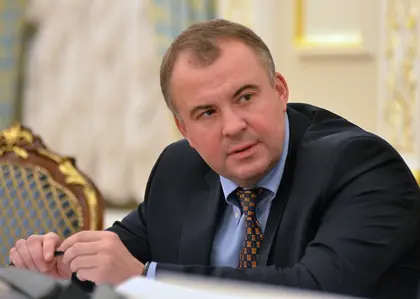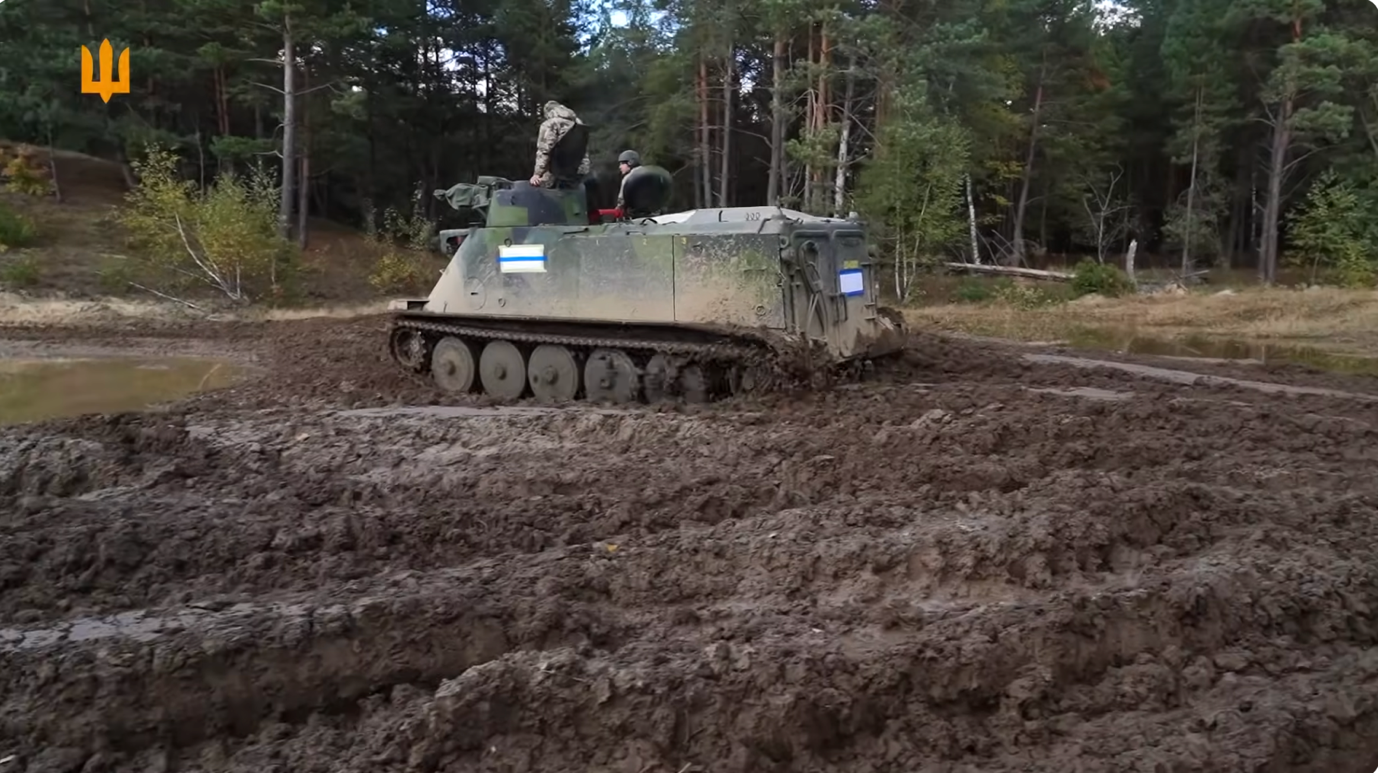A defense corruption scandal in Ukraine claimed its first high-level victim on March 4 as Ukrainian President Petro Poroshenko dismissed his longtime friend and business partner Oleh Hladkovskiy from both of his official posts.
Hladkovskiy had been the first deputy secretary of Ukraine’s National Defense and Security Council, as well as the chairman of the Inter-Departmental Commission on Military Technical Cooperation and Export Control Policy. He was fired a week after his son Ihor was accused of being involved in embezzlement and smuggling in Ukraine’s defense production industry.
The elder Hladkovskiy has denied all of the accusations, calling the scandal “an artificial compilation of deceitful provocative facts” spread in the media to discredit him ahead of the presidential election on March 31. Poroshenko on Feb. 26 approved Hladkovskiy’s request to suspend him for the period of criminal investigation into the case.
Poroshenko said during a visit to the city of Mykolaiv, a city of nearly 500,000 people located 400 kilometers south of Kyiv on March 4 that he had now signed a decree on dismissing Hladkovskiy.
The president also called on the NABU, the national anti-graft agency launched in late 2015, to “objectively and impartially investigate all of the facts” about the accusations made by the Bihus.Info investigative journalism project on Feb. 25.
“If someone is guilty, they must be held to account,” the president said.
“Those who work consciously on strengthening the defense of the country must be given an opportunity to defend their good name,” Poroshenko said. “Tonight I am going to have a phone talk with the NABU leadership. It is a new anti-graft department with the reputation of being clearly independent from the Ukrainian authorities. It is totally depoliticized, and this is very important for (ensuring) public trust in the results of this investigation.”
Poroshenko also called upon all of the country’s law enforcement agencies to be as open as possible, and to provide the public with as much information about the case as they can.
The Nashi Groshi program, part of the Bihus.Info investigating journalism project, accused a group of young businessmen, namely Hladkovskiy’s son Ihor and entrepreneurs Vitaliy Zhukov and Andriy Rogoza, of smuggling parts for military equipment from Russia and supplying them to Ukrainian defense production enterprises at inflated prices, making millions of dollars.
All three men have denied the accusations made against them.
According to Nashi Groshi, the alleged fraudsters in many cases sold worn out or even defective parts and equipment to the Ukrainian military, which were then used in combat in the war zone of Donbas.
An alleged exchange of messages between the three men dated between 2015 and 2017 indicated that Ihor Hladkovskiy was actively exploiting the authority of his highly-placed father to push through deals with Ukrainian military production enterprises, Nashi Groshi said. He even influenced his father’s work activities for his own benefit, and that of his business partners, the journalists claimed.
Nashi Groshi also alleged that the top management of UkrOboronProm, the giant state-run defense production concern including 130 enterprises, and in particular its currently serving director general, Pavlo Bukin, was aware of illicit smuggling of low-quality and defective Russian spare parts for inflated prices. Bukin has also denied the accusations made against him.
Nashi Groshi said its investigation was based on a massive leak of archived messages and official documents sent to them by an anonymous source some time ago. The archive was carefully fact-checked and verified before they aired the results of their investigation, they said.
However, they have refused to share their information in order to protect the anonymity of their source.
The investigation generated a huge scandal, and dealt a heavy blow to the image Poroshenko cultivates as a strong wartime leader responsible for rebuilding the nation’s armed forces and defense production.
After the scandal broke, the president’s entourage launched a publicity campaign to support Hladkovskiy and his partners in social media and news coverage. In particular, Ukrainian Prosecutor General Yuriy Lutsenko on Feb. 27 said that smuggling military hardware from Russia was “acceptable in a country fighting a war,” although he criticized making a profit from it.
He also said that all of the criminal schemes revealed by the journalists had already been under investigation by law enforcers, though none of the officials involved in the cases had even been suspended or arrested.
However, the Feb. 25 revelations are still not Nashi Groshi’s final word on this case — on March 4, the project is expected to publish the second half of its investigation, revealing juicy details of alleged corrupt practices by the elder Hladkovskiy.
Poroshenko and Hladkovskiy have been close friends and business partners since the 1990s: In particular, until 2005 they were the co-owners of the Bohdan Group, a Cherkasy-based automobile manufacturing corporation.
With Poroshenko becoming president after the EuroMaidan Revolution of 2014, Hladkovskiy soon took a top-level post in the country’s defense production sector amid the war with Russia. In 2015, the president appointed his business partner as the first deputy secretary of Ukraine’s National Defense and Security Council, where he oversaw the country’s defense procurement.
At the same time, Hladkovskiy has frequently been linked to corruption scandals at UkrOboronProm revealed by journalists over the past few years. Since he has been in office, the Bohdan Group has won a number of lucrative government contracts to produce Bars-6 and Bars-8 armored cars for the military, as well as to supply the army with Bohdan 2251 military ambulances, infamous for their unreliability in battlefield conditions.
According to State Watch, a non-profit anti-graft watchdog, starting from December 2018, Bohdan received an additional Hr 510 million to fulfill new classified contracts to produce vehicles for the Defense Ministry.
Moreover, according an investigation by the watchdog published on March 1, the corporation, along with the Kuznia Na Rubalskomy, a Kyiv-based shipyard owned by Poroshenko until late 2018, is among Ukraine’s top defense sector suppliers.
You can also highlight the text and press Ctrl + Enter




